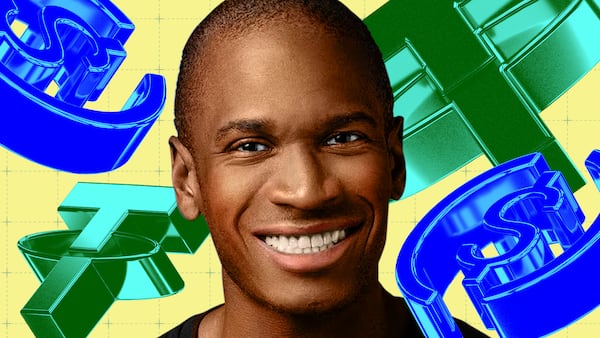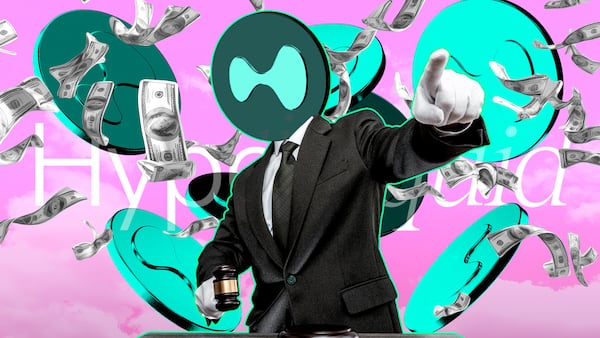- Hyperliquid's recent stablecoin contest wasn't fair, critics allege.
- They say the winner, Native Markets, had prior knowledge of the contest and received support from insiders.
- The situation risks marring Hyperliquid’s reputation.
Critics are questioning the fairness of Hyperliquid’s stablecoin contest after a team called Native Markets emerged as the winner, securing the chance to issue a dollar-pegged token backed by the industry’s most successful on-chain crypto futures exchange.
While Native Markets won with more than 68% of the vote, those who saw the process unfold point to several circumstances that suggest the team had an unfair advantage.
They say there are signs that Native Markets had a potentially months-long head start to prepare for it. Other critics accuse Native Markets of receiving secret help and support from Hyper Labs, the firm behind the Hyperliquid protocol, and the Hyper foundation, a nonprofit organisation associated with Hyperliquid.
“After looking at the whole process, one can only wonder why this whole governance vote was even submitted,” Artem Sinyakin, founder and CEO of Oak Research, a crypto market intelligence platform, told DL News. Hyperliquid is one of several crypto projects the firm conducts research on.
The situation risks marring Hyperliquid’s reputation, and threatens the goodwill the project has earned from users since its 2023 launch.
Native Markets’ proposal wasn’t without merit, winning support from many in the Hyperliquid community.
A co-founder, Max Fiege, is a Hyperliquid ecosystem investor and adviser. Many in the Hyperliquid community view Native Markets as the team most aligned with the Hyperliquid protocol because of this.
But at the same time, the Native Markets team is new and unproven. They’ve never built a stablecoin before, critics say, while other bidders had years of experience. So why them?
DL News asked Native Market’s three co-founders if they had prior knowledge of the contest before it was announced or received support from members of Hyper Labs or the Hyper Foundation. None of the co-founders responded after multiple requests for comment sent via email and across multiple social media channels.
Multiple sources close to the situation declined to comment to DL News out of fear of reprisals and damage to their reputation among leaders in the Hyperliquid community.
Native Markets describes itself as a company, but it is unclear where it is incorporated as a company, if it is.
The contest
The contest for the rights to build an official Hyperliquid stablecoin kicked off on September 5.
Nearly a dozen teams rushed to submit proposals, eager to partner with the protocol — one of the industry’s breakout successes in recent years.
Hyperliquid is the biggest onchain futures exchange, handling more than $335 billion in trading volume over the past month, according to DefiLlama data.
It’s a hit with traders because it marries the speed and usability of centralised exchanges like Binance with the transparency and self-custody of DeFi.
As such, whoever won had a lot to gain. A stablecoin with Hyperliquid’s blessing is likely to generate lots of demand and be highly lucrative.
New York-based fintech Paxos, USDe issuer Ethena, and DeFi lender Sky were among the teams who submitted proposals alongside Native Markets.
As more proposals came rolling in, each trying to offer more than the last, critics noticed something strange.
‘Backroom deal’
Many of Hyperliquid’s validators — entities enlisted to decide on the successful proposal — were fixated on Native Markets’ proposal, dismissing other bids that offered Hyperliquid more favourable terms.
“Hearing from multiple bidders that none of the validators are interested in considering anyone besides Native Markets,” Haseeb Qureshi, a managing partner at Dragonfly, a crypto venture firm, said in a September 9 X post.
“It’s not even a serious discussion, as though there was a backroom deal already done.”
Qureshi’s firm is an investor in multiple teams who submitted proposals to the stablecoin contest.
Hyperliquid hasn’t publicly addressed the accusations that a backroom deal was made before the contest started.
Yet Qureshi wasn’t the only one to raise doubts.
“There was a clear preference from validators and big ‘whales’ on Hyperliquid for Native Markets, even if their proposal appeared weaker than the ones by Paxos and Ethena,” Oak Research’s Sinyakin said.
“[I] don’t think anyone is arguing against the fact the Native Markets team was aware of the opportunity before it was made public,” Guy Young, Ethena Labs founder and CEO, told DL News. “It’s just business. No need to be upset.”
Sky founder Rune Christensen declined to comment on the allegations and said the Hyperliquid community was very open and supportive of Sky’s bid, despite Sky being a relative outsider.
Paxos Labs’ founders did not respond to requests for comment.
Odd timing
Critics point to several events surrounding Native Markets’ proposal that raise questions about whether the team had prior knowledge of the contest, which would’ve given them an unfair advantage.
When teams submitted proposals, they were requested to include a crypto wallet address to receive the rights to build the stablecoin, should that team’s proposal win.
The address Native Markets provided was funded several hours before the contest was announced publicly, onchain records show.
Native Markets was also the first to submit its proposal, around 90 minutes after the contest was announced publicly — a striking contrast to rival teams who spent days drafting their bids.
When Native Markets submitted its proposal, Mary-Catherine Lader was listed among the project’s co-founders. Before becoming one of Native Market’s three co-founders, she served as COO of Uniswap Labs, the firm behind the biggest decentralised exchange.
She left her role at Uniswap in July. At the time she indicated she had another position lined up, but didn’t say what she was doing.
Lader leaving Uniswap in July suggests that Native Markets may have been planning to compete in the stablecoin competition months before it was publicly announced, critics say.
DL News asked Lader if this was the case. She didn’t respond to multiple requests for comment.
Despite the uproar, Hyperliquid hasn’t addressed the allegations.
DL News asked Hyperliquid co-founder Jeffrey Yan if he or other Hyperliquid developers or members of Hyper Labs had tipped off Native Markets or secretly pledged support for their proposal before the stablecoin contest was publicly announced.
Yan didn’t respond to multiple requests for comment.
Tim Craig is DL News’ Edinburgh-based DeFi Correspondent. Reach out with tips at tim@dlnews.com.









